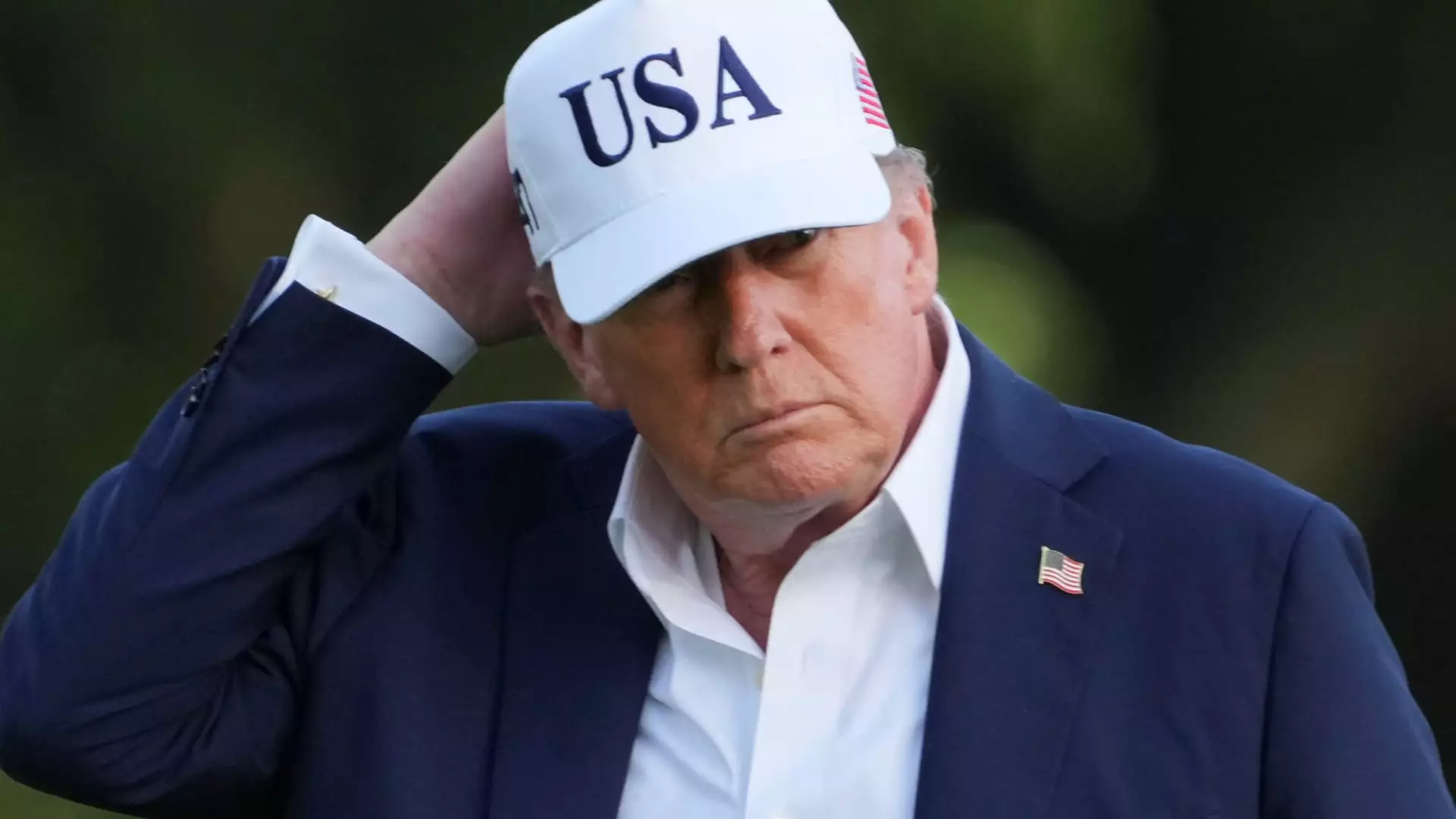The recent decision by the United States to reimpose a 25% tariff on imports from Japan and South Korea epitomizes a flawed and reactionary stance on international trade. While critics might argue that defending national economic interests is justified, the manner in which this policy is executed reflects a dangerous disregard for the complexities of global commerce. By resorting to aggressive tariffs, the U.S. risks igniting a trade war that could destabilize markets, hurt consumers, and undermine collaborative economic growth—values that should underpin a balanced approach to globalization.
The timing and manner of these tariffs demonstrate a reckless impulsivity, fueled more by political signaling than by sound economic strategy. The use of formal letters, paired with threats of retaliation and vague promises of future adjustments based on diplomatic whims, reveals a posture rooted in confrontation rather than negotiation. This approach undermines the potential for constructive dialogue, which should be the foundation of resolving trade imbalances. Instead, the U.S. appears intent on provocative tactics that threaten to entrench divisions within the global trading system.
The Illusion of Trade Deficit as a Sin
One of the most troubling aspects of this move is the emphasis on trade deficits as a moral failing or a national security threat. While the Trump administration has long fixated on these figures, the economic literature increasingly suggests that trade deficits are not inherently damaging nor indicative of unfair practices. Countries run deficits for complex reasons—investment flows, currency valuation, and comparative advantages—none of which automatically spell disaster.
By insisting on tariffs solely to “correct” these deficits, the U.S. government simplifies a multifaceted economic reality into a partisan talking point. This misguided focus distracts from more productive discussions about innovation, productivity, and sustainable growth. Furthermore, it risks alienating key allies like Japan and South Korea, whose cooperation is essential to maintaining a balanced network of global supply chains.
The Dangerous Politics of Tariffs
The rhetoric surrounding the new tariffs, including warnings against retaliatory actions, reveals a tone of arrogance rather than mutual respect. The implicit threat that any retaliatory tariffs will be met with even higher tariffs underscores a zero-sum mentality incompatible with the principles of fair trade. This strategy may generate short-term political points, but it rehearses a dangerous playbook—one that leads to retaliatory spirals, economic pain, and diplomatic fallout.
Additionally, the language used in the letters—particularly the claim that tariffs will depend on diplomatic relations—exposes a level of unpredictability that destabilizes long-standing economic partnerships. Rather than seeking sustainable solutions through diplomacy and mutual benefit, the U.S. appears willing to gamble on unilateral actions that could undermine decades of collaborative commerce. This dangerous gamble jeopardizes not just specific trade arrangements but the broader stability of the global economy.
Why Flexibility and Diplomacy Matter More Than Tariffs
In an interconnected world, imposing blanket tariffs without considering the nuances of international trade is shortsighted and harmful. True leadership involves engaging with allies and competitors alike through dialogue and data-driven policies, rather than intimidating language and unilateral measures. Walling off trade through tariffs may seem like a quick fix to domestic concerns, but it ultimately hampers innovation, raises costs for consumers, and diminishes America’s influence in shaping fair global standards.
A more intelligent approach would involve transparent negotiations, targeted reforms, and a recognition that economic interdependence can be a source of strength. Instead of wielding tariffs as walls to protect a stagnant narrative of economic nationalism, policymakers should invest in policies that promote competitiveness, technological leadership, and fair standards that benefit both sides. The path forward demands humility, multilateral cooperation, and an acknowledgment that the world’s economies are deeply intertwined—not an arena for petty tariff battles.
By recklessly escalating trade conflicts, the United States risks losing the very advantages that make it economically resilient: its ability to adapt, innovate, and work collaboratively. The current strategy is not only shortsighted but potentially catastrophic for the principles of mutual respect and shared prosperity that should guide responsible global leadership.

Leave a Reply